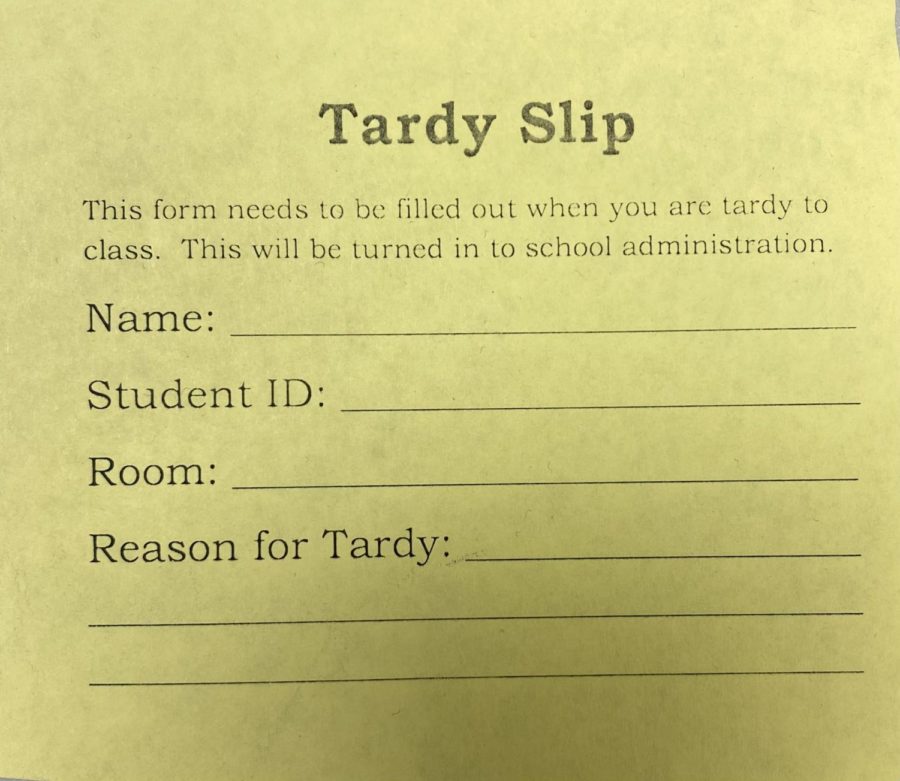Student tardiness on the decline under new policy
Students who arrive to class late are given a tardy slip which administrators use to track the tardy data. Photo courtesy of Haley Maser.
December 17, 2021
Beginning on October 25, administrators began implementing new tardy policies to curb the growing number of late arrivals to classes. Since the policy changes, tardies have seen a noticeable decline.
Between October 18 through the 29, Joliet West students received an average of 716 tardies per day according to data from academy coordinator Mr. O’Neill. Since the crackdown on late arrivals, data has shown a decline in the number of students late to class. Between November 15 and 30, the average number of tardies per day decreased to 454.75.
“Based on data alone, we were seeing the vast majority of our tardies happening from freshmen and sophomores,” explained O’Neill. “For the majority of both of these groups, this is their first year in building at Joliet West. There has been substantial effort on all fronts to provide support for these students, and the tardy data shows tardies are reducing greatly.”
Under the new rules, students who receive an unexcused tardy in at least two class periods will receive an automated call to their parent or guardian. If a student arrives to their class over five minutes late, it is considered an excessive tardy and they will receive a referral to their dean. Additionally, hall sweeps have been implemented after the bell to identify late students and discuss the reasons behind the chronic tardiness.
“Not having a policy at the beginning of the year was a recipe for calamity and chaos,” explains Dean Thompson. “We basically had two freshman classes,” which added to confusion in the hallways. The aftermath of being out of the school building for an extended period and lacking a set tardy policy during students’ return contributed to the escalation of tardies at the beginning of the school year.
“Students need boundaries,” Thompson emphasized. In looking at data from his own students, he explained the number one reason for tardiness was “social factors,” including talking with friends in the hallways. However, he agrees that tardies have improved, explaining that while he used to see what looked like a thousand students in the hallway after the bell, he now only sees a couple hundred.
Despite the drop in the number of tardies, especially in students arriving over five minutes late, Thompson and administrators hope the policy will continue to evolve. Dean Thompson explained that the goal is to prepare students for real-life and, “move away from excessive tardies,” focusing on all late students.


